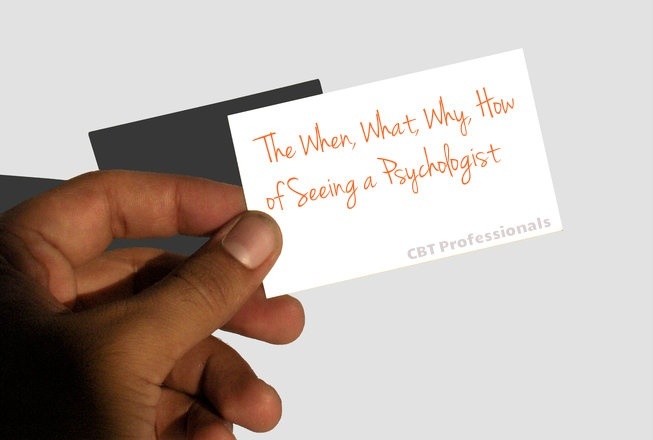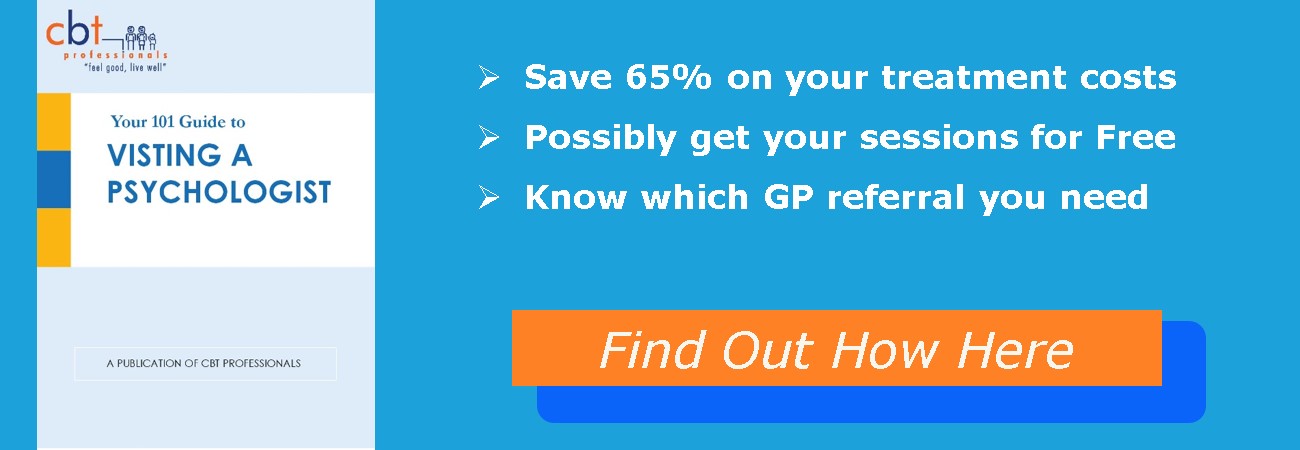- Gold Coast Psychologists & Online Psychologists
- Coomera (07) 5551 0251
- Nerang (07) 5668 3490
- admin@cbtprofessionals.com.au
Seeing a Psychologist – The When, What, Why, How
Why Do People See a Psychologist?

When I meet clients for the first time I will ask “what has brought you to my office today?” Some of my clients tell me that they are trying to make sense of what has happened in their life. Others say they want to learn how to deal with their strong and difficult to manage emotions. Many say they are trying to reduce conflict with co-workers, friends and family. Others will say they are having problems adjusting to major changes in their life. However, no matter how different their reasons for attending therapy, they all share one goal……….
To live a fulfilling life with theminimum amount of suffering.
When Do People See a Psychologist
Most of the time we are able to solve our own problems, sometimes with help from friends and family, other times by going it alone. However there are times when we don’t have the internal or external resources to solve our problems, and as a result we suffer. A good time to see a psychologist is when you are experiencing more bad days than good, if what you’ve tried isn’t working and you’re out of ideas, or if you just need a confidential someone to talk to that is outside your family and friends.
What is Seeing A Psychologist About?
The goal of therapy is essentially to help people to learn how to reduce their suffering and increase the quality of their life. The important part is to ‘learn how’. We all lack the skill of problem solving in at least one or more areas of our life. For example, we might be great at making friends and helping people, but find it hard to say no when people ask for help. In this case we need to develop the skill of being assertive and selecting the right time to say ‘yes’ and the right time to say ‘no’.
Who Sees A Psychologist
There is a myth that most people are ‘psychologically healthy’ and that therapy is only for those who are ‘mentally ill’ and are somehow defective or broken. The reality is that everyone experiences problems they cannot easily solve and will therefore struggle with their psychological health at different times during their life. This is when you need help. There is no shame in taking part in therapy. It is not about getting someone else to fix your problems. It is about taking personal responsibility for managing and solving your problems, with the support and guidance of a professional.
So should you see a psychologist? That’s up to you – but if you’re contemplating doing so, there must be a reason for it. You have nothing to lose in giving it a go. For more information about visiting a psychologist including what to say to your GP, how to find a good psychologist, what referrals are available for psychology visits and what to expect at your first visit with a psychologist – download our free eBook here.


